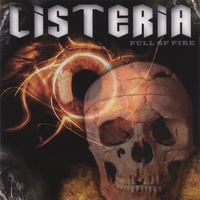Eva Saiz of El Pais reports the owners of the food company responsible for the worst-ever listeriosis outbreak in Spain were arrested on Wednesday for manslaughter.
 Since August, the outbreak has killed three people, caused seven miscarriages, and infected more than 200 people. The source of the bacterial infection was traced to a Seville-based company called Magrudis, which sold a contaminated pork loin product called carne mechada under the brand name La Mechá. Three more products produced by the company also tested positive for Listeria monocytogenes.
Since August, the outbreak has killed three people, caused seven miscarriages, and infected more than 200 people. The source of the bacterial infection was traced to a Seville-based company called Magrudis, which sold a contaminated pork loin product called carne mechada under the brand name La Mechá. Three more products produced by the company also tested positive for Listeria monocytogenes.
The owners of Magrudis, José Antonio Marín Pince and his two children Sandro and Mario, have been accused, to different degrees, of involuntary manslaughter, crimes against health and causing injury to a fetus.
According to investigators, the three men knew in February that some of their products had been contaminated but did nothing to eliminate the bacteria from their facilities. Instead they continued producing and distributing their products.
“When the crisis broke, we reminded the business by email that one of their samples had been contaminated much earlier. Given that they did nothing, we passed on this information to the courts,” José Antonio Borrás, the owner of the Microal Group laboratory, told EL PAÍS.
The laboratory handed a report to the court in early September, and according to sources close to the investigation, the contents prompted Judge Pilar Ordóñez, who is overseeing the case, to take action on Tuesday.
Neither laboratories nor companies are legally obliged to warn the authorities if a product is found to test positive, but a company does have a duty to adopt measures to correct the problem. Investigators want to find out why the owners of Magrudis did not do this, and why, more importantly they hid the positive test results from health inspectors who visited the factory after the alert was raised. In public appearances, both Marín and his son Sandro claimed that the company had successfully passed all sanitary controls.
Traces of listeria were found in tests carried out on the Magrudis production line, including the oven carts used to transport the meat during the preparation process, and the larding needles used to inject the pork with fat before cooking. The crisis was complicated by the fact that the company’s products had been sold on to another firm and prepared for sale as an own-brand product in a supermarket chain without the proper labelling.


